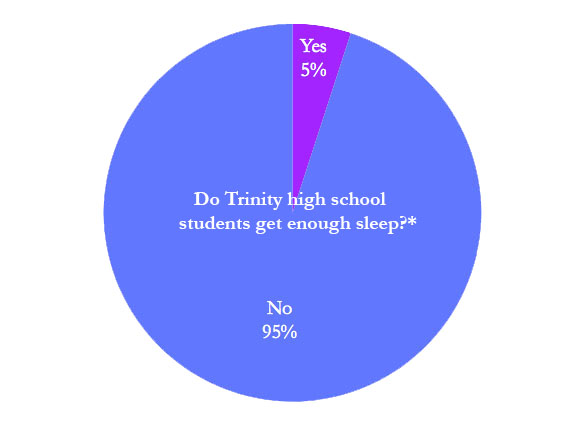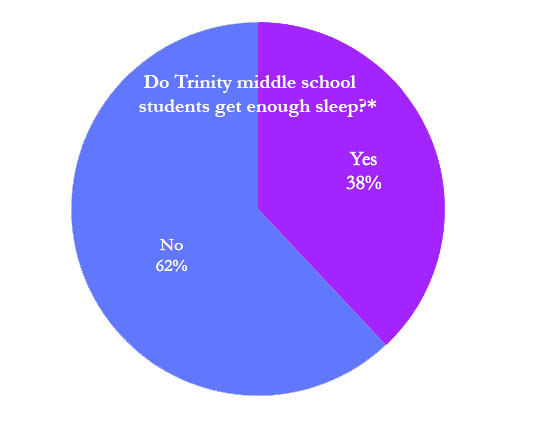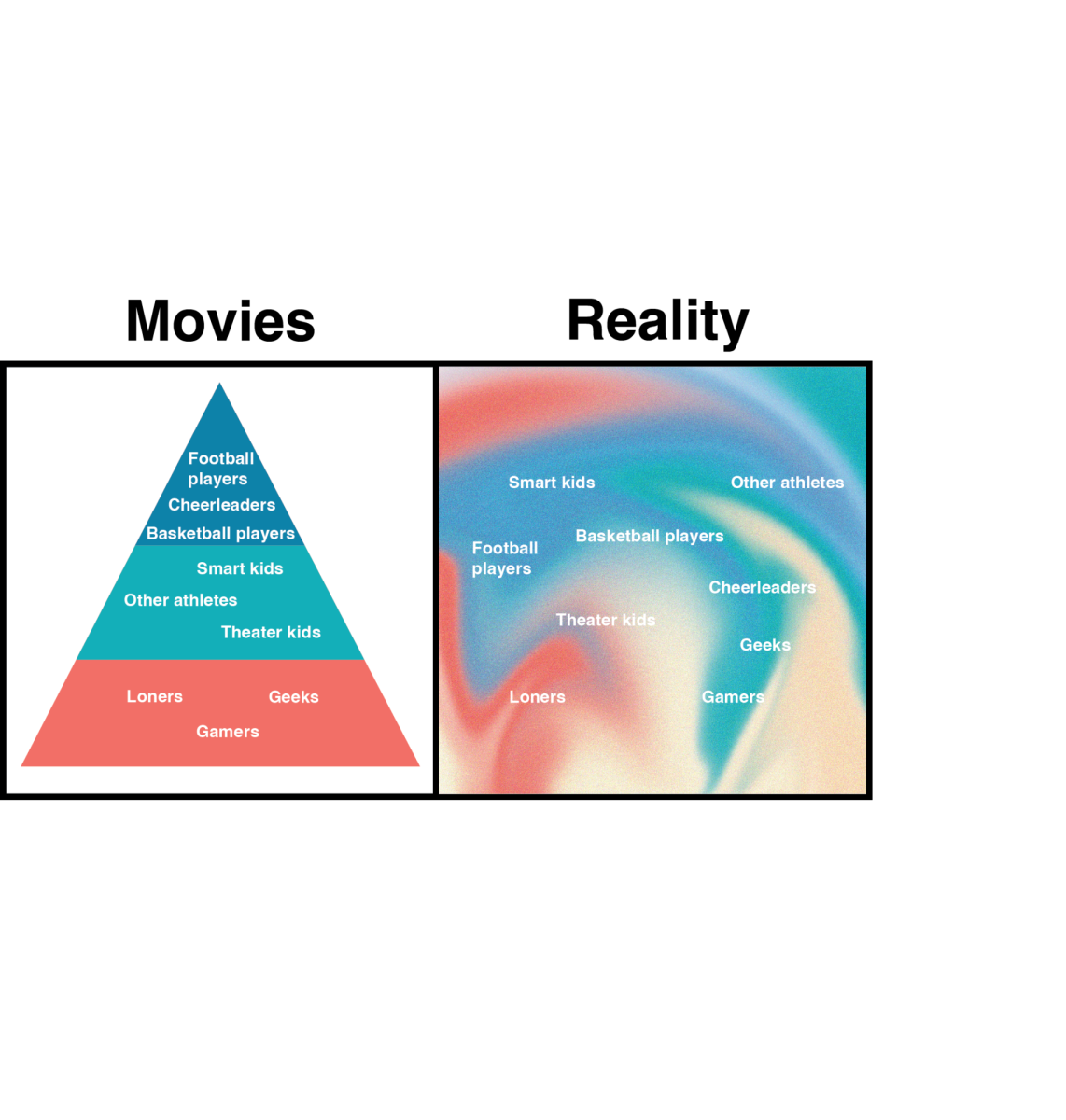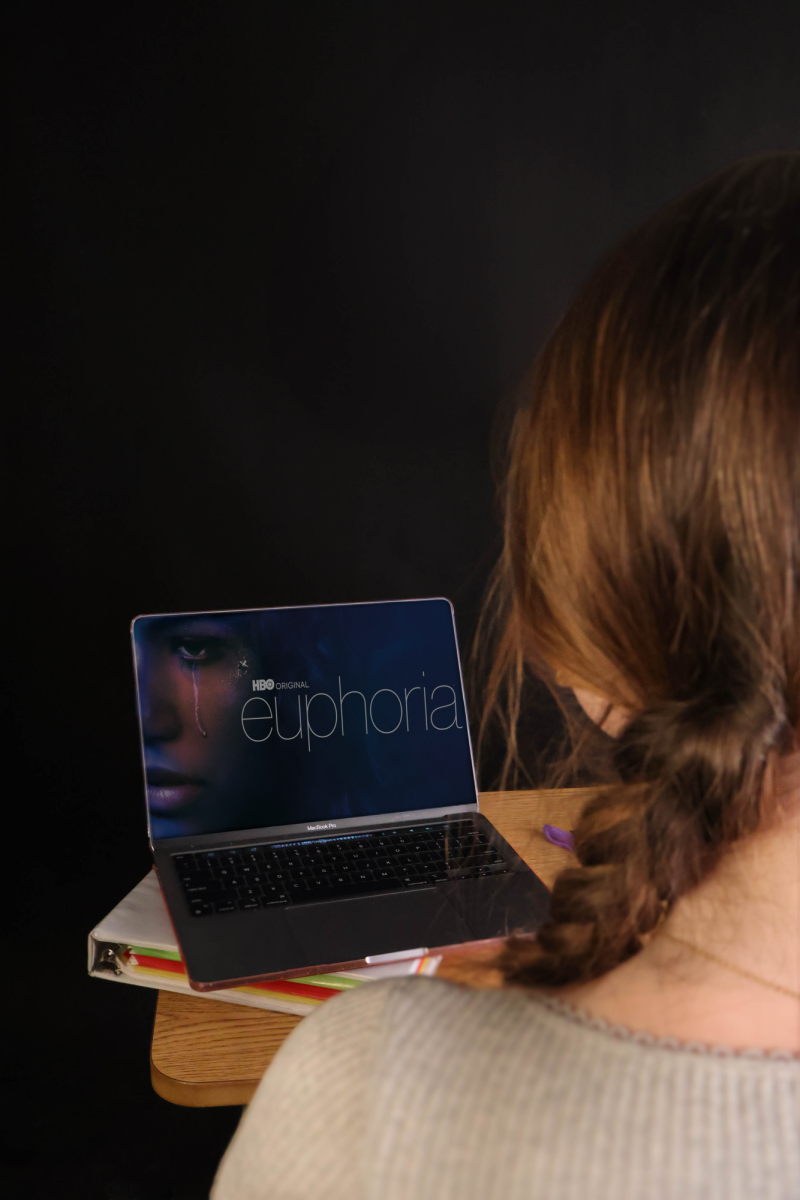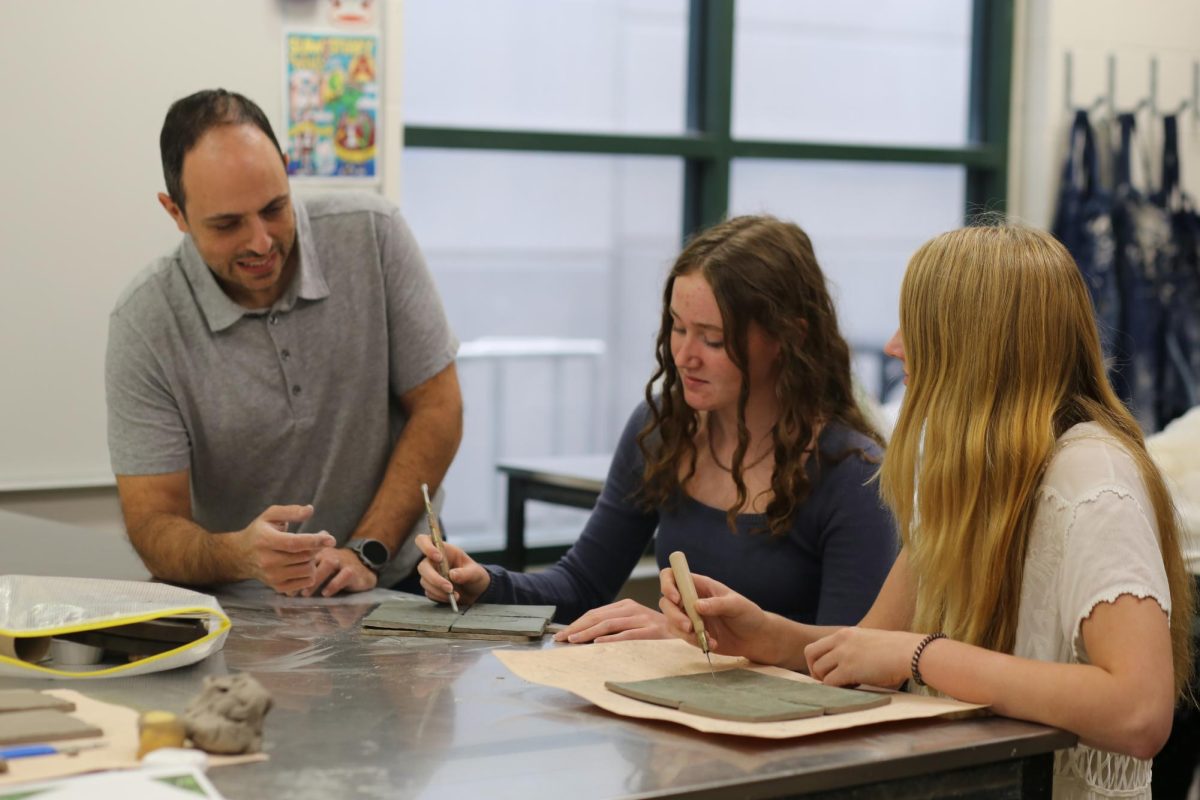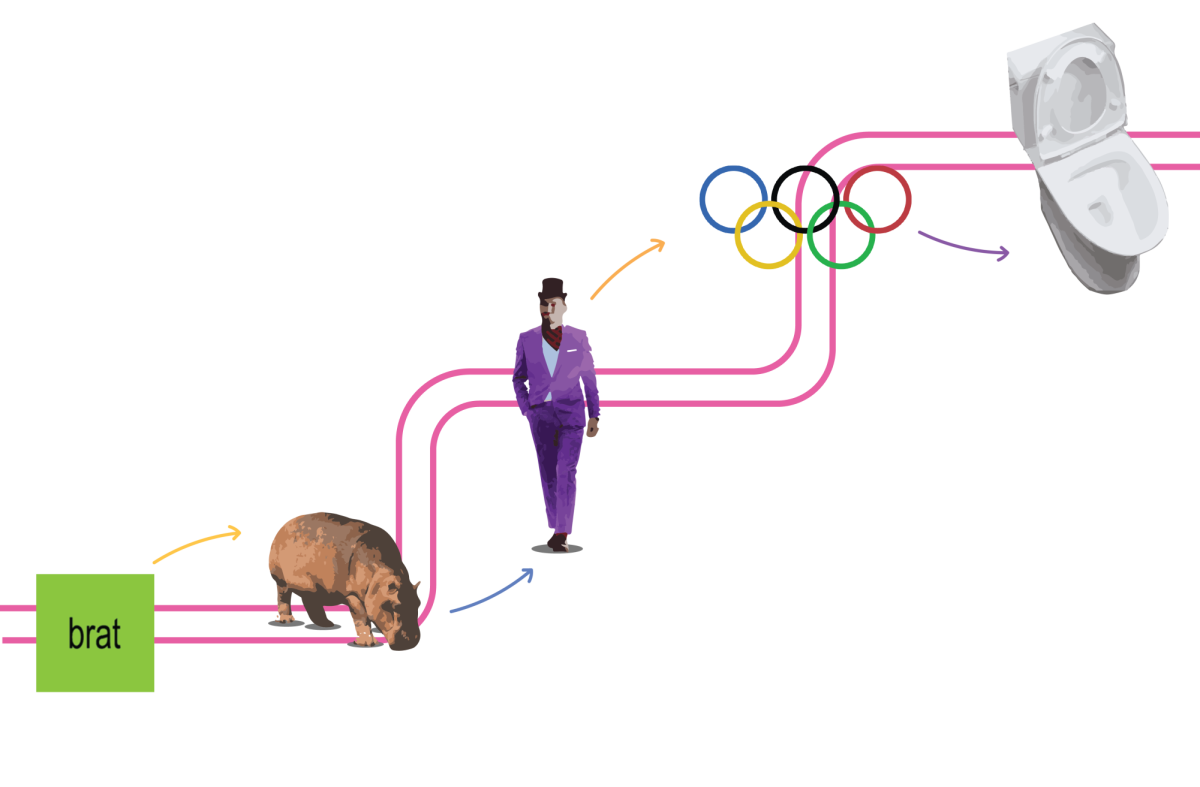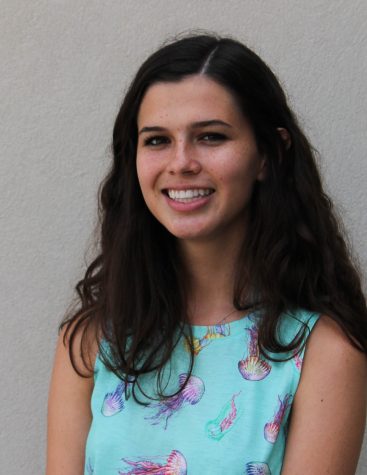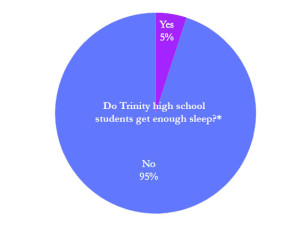
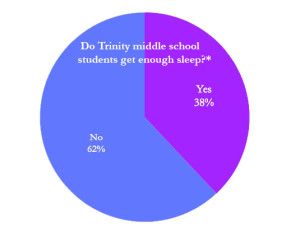 I stumbled into my third period late, looking like a caricature of an overworked Trinity student as I balanced a carton of Grille-purchased milk and cereal in one hand and a review sheet in the other.
I stumbled into my third period late, looking like a caricature of an overworked Trinity student as I balanced a carton of Grille-purchased milk and cereal in one hand and a review sheet in the other.
I had stayed up late the night before, and I know I was not the only one. The National Sleep Foundation (NSF) has said that teenagers need at least 8 ½ to 9 hours of sleep each night, and on average, Trinity high school students recently surveyed fell about two hours below that mark. Only 5% of Trinity high school students get the NSF’s definition of a full night’s sleep. To put this in perspective, a recent national survey conducted by the NSF found that about 15% of teenagers nationally get enough sleep.
Junior Jarelis Cabrera said she only gets six hours of sleep each night, after coming home from a full day of classes, volunteering and extracurriculars.
“I get home around six, and then I have to start homework… By midnight, I’m done with my homework, and that’s if it’s not a super-hard class,” Cabrera said.
Middle school students at Trinity face a sleep problem as well. Although considerably more middle school students get enough sleep, the figure is still barely above 30%.
The Center for Disease Control has called our society’s sleep problem a “public health epidemic,” which has in the past months sparked a national conversation. Many politicians and parent organizations are calling for later school start times—but even this is a problem as it complicates practice times or schedules for students who work. Organizations like the NSF warn that teens are at a unique and crucial part of development in which biological sleep patterns are changing and getting enough sleep is paramount to health. Teens who get enough sleep are found to be less stressed, make more healthful food choices and have an overall more positive outlook.
In spite of all this, it is for the most part unrealistic to expect Trinity students to balance classes, extracurriculars and a semblance of a social life while still getting to bed before ten.
However, there are a number of small fixes that can help add precious minutes of sleep to a busy schedule.
For example, taking a study hall was found to give Trinity students recently surveyed ten extra minutes of sleep each night. If it’s falling asleep that’s the problem, the NSF suggests putting away screens half an hour before bedtime.
Time management is also an important aspect. Cabrera gave some advice from her years at Trinity.
“I would suggest less homework, or to cut down on your extracurriculars. Focus maybe on one sport, instead of a sport, volunteering and other stuff,” she said.
Google has chosen to creatively fight the problem as well as increase productivity in its offices by installing futuristic “nap pods.” The idea was so successful that several universities, including the University of Michigan, brought nap pods to their libraries.
Biology teacher Aaron Ashworth prescribes a different solution—a self-coined “power relax session”—15 minutes spent on some sort of brain stimulating activity, like meditating or reading, instead of a nap.
“You’re still stimulating your brain, but you’re doing something which is enjoyable and relaxing to you, so you can break the stream of consciousness that is required for school,” Ashworth said.
The final solution, if there can be one, to our sleep problem is still unclear and would likely necessitate major reform. The idea of the administration dipping into the Trinity Prep Fund to bring nap pods to campus is far fetched, and these small solutions will far from revolutionize our sleep schedules. Remember that even clocking in 20 extra minutes of sleep each night can make an impact. In the meantime, I will probably still be crunching on my Frosted Flakes in third.




